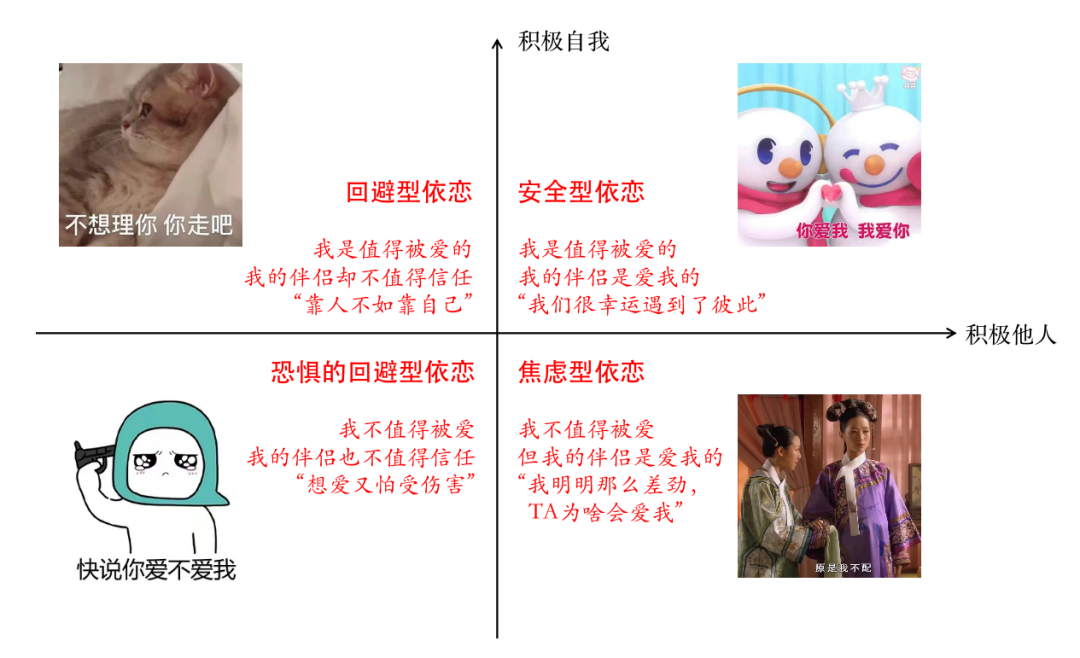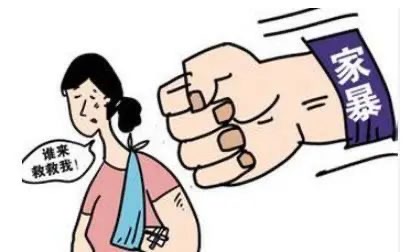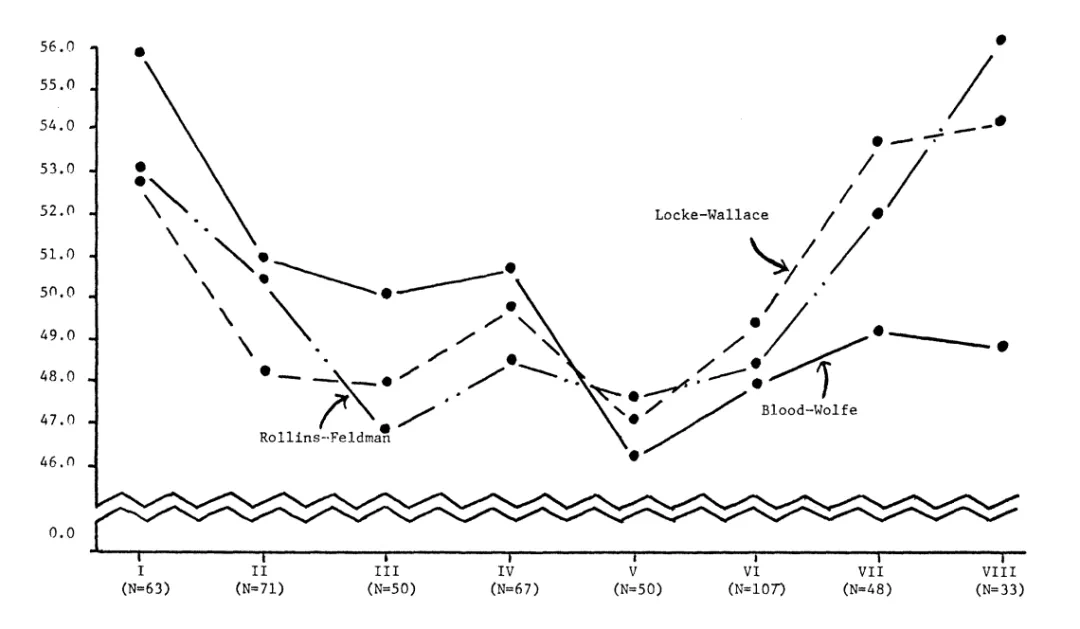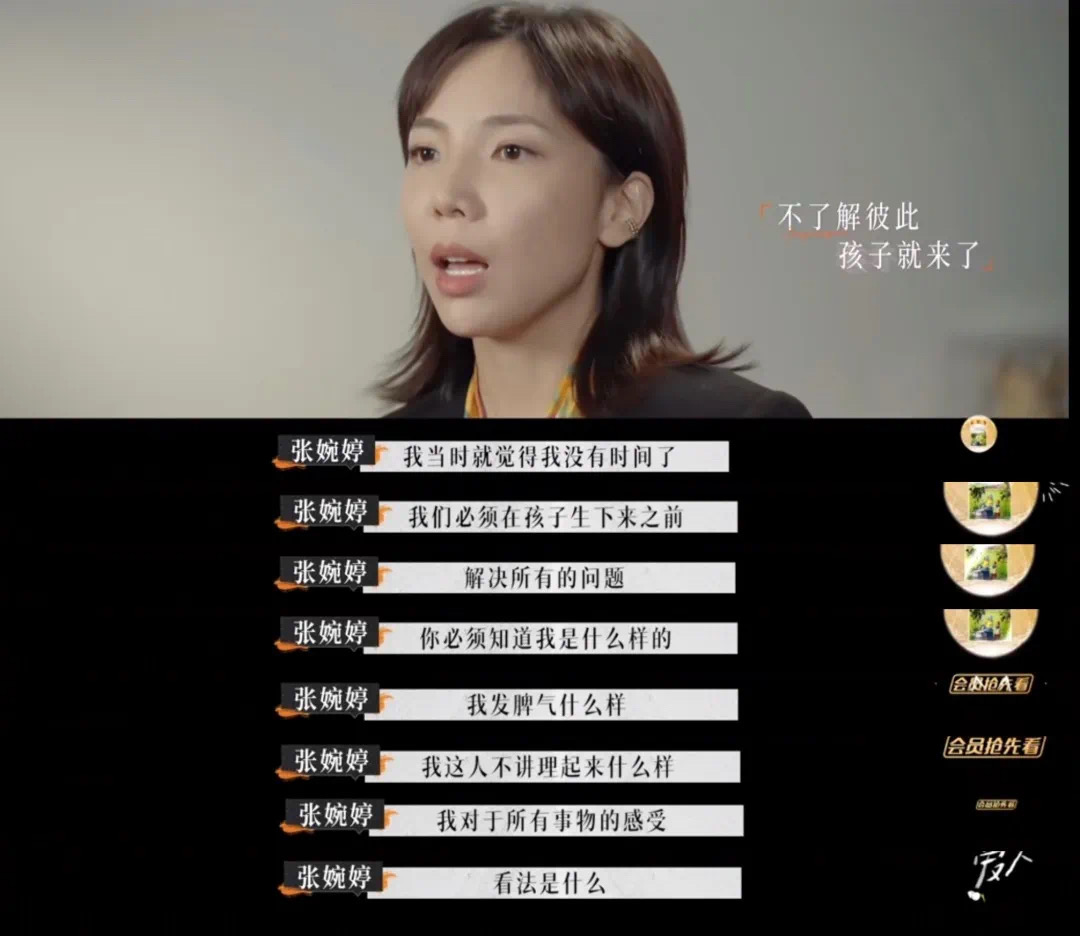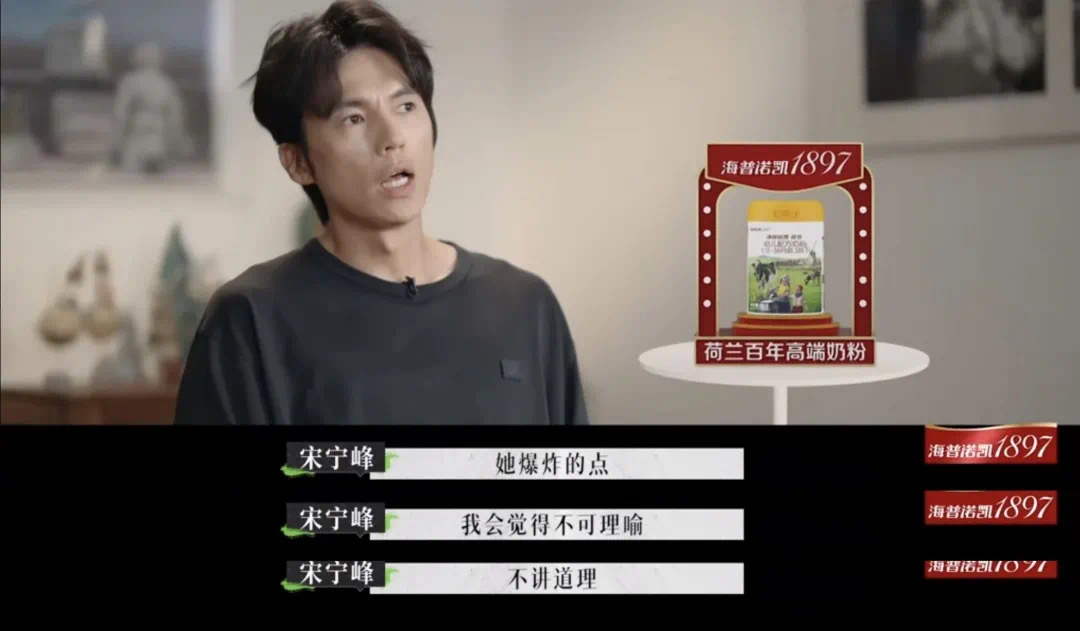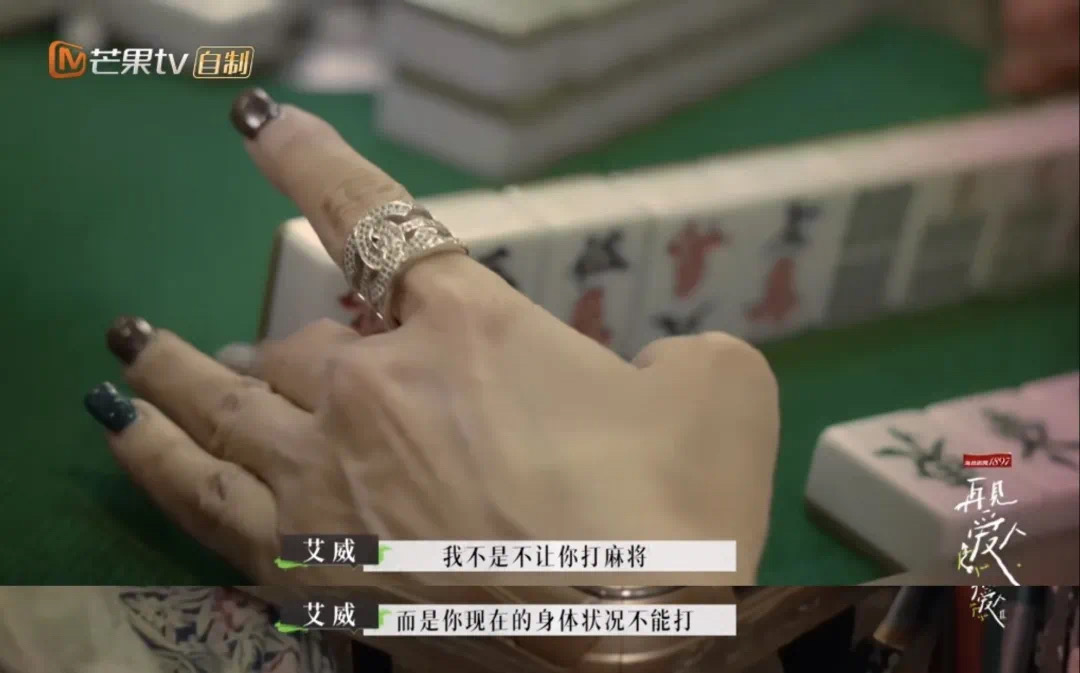Most of us have been on the receiving end of emotional blackmail at some point in our relationship history.
我们大部分人都曾在往昔感情关系中某个时间点受到过情感勒索。
Sometimes we were more aware of it; other times, we didn’t see it depending on how obvious the manipulation was. One thing is for sure; it feels miserable to be a victim of blackmail.
有时我们可以较为轻松识别,但其他时候则取决于对方操纵手段的明显性。但有一点是肯定的,那就是作为情感勒索的受害者,感觉非常糟糕。
You can employ methods to handle the situation once you recognize the signs. Before we move on to spotting the signals and finding ways to deal with the blackmail, let’s first define what is emotional blackmail.
一旦你能够识别情感勒索的迹象,那么就可以采用方法应对这种情形。在介绍相关迹象和应对方法之前,首先让我们来定义什么是情感勒索。
Emotional blackmail is a form of dysfunctional dynamic that happens in some close relationships where a person uses various forms of manipulations to get you to do what they want.
情感勒索是一种不良的关系状态。它发生于一些亲密感情关系中,是指其中一方采用各种类型的操纵手段,让你做他们想要你做的事情。
A person trying to emotionally blackmail you will instill feelings of anger, fear, or guilt to get you to comply with what they want when they want it. However, in these situations, it can be difficult to gauge and clearly point to whether the victim is being manipulated.
试图情感勒索你的人会向你注入愤怒、恐惧或内疚感,以此来让你服从他们的要求和欲望。但在这些情形中,可能会很难衡量或很难明确说出受害者是否正在被操纵。
Leaders in the field, Susan Forward and Donna Frazier identify the power dynamic that occurs in such manipulation. They suggest that emotional blackmailers employ a fear – emotion – guilt tactic to get what they want.
该领域领军人物 Susan Forward 和 Donna Frazier找出了这类操纵的底层运作方式。他们提出,情感勒索者会采用一种“恐惧——情感——内疚”的策略来让对方满足自己。
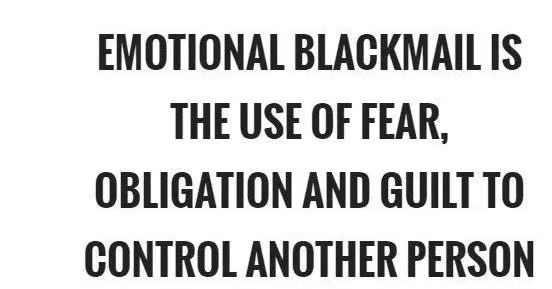
FOG
FOG is a term named by Forward, suggesting that fear, obligation, and guilt are the dynamics in emotional blackmail between the manipulator and the victim. The acronym FOG also accurately describes the confusion and lack of clarity and thinking that can occur in these interpersonal dynamics. Emotional blackmail can create a fog and contribute to feelings of fear, obligation, guilt, and anxiety.
FOG 是 Forward提出的一个术语,指代操纵者和受害者之间情感勒索关系的三个动力:恐惧、义务和内疚。
这一首字母缩写词同时也精确描述了这类人际关系中可能出现的如fog(雾)一般的困惑、混沌和无法理性思考等情形。情感勒索会生成一片大雾,并造成恐惧、义务感、内疚和焦虑等感受。
Emotional blackmail in relationships can be more or less subtle and appear as withholding of affection, disappointment, or even slight changes in body language and tone of voice.
感情关系中的情感勒索可能会或多或少微妙一些,而且会表现为收回爱意、失望、甚至肢体语言和语调的细微变化。
Because the tactics can be covert, emotional blackmail may be difficult to spot, especially for those who may experience more vulnerabilities to it. According to Forward,
由于策略的隐蔽性,可能就会很难识别情感勒索,尤其是对于那些更易受其影响之人。根据 Forward所说:
“Blackmailers make it nearly impossible to see how they’re manipulating us, because they lay down a thick fog that obscures their actions. All the while, if we attempt to fight back, they ensure that we literally can’t see what is happening to us.”
“情感勒索者让人几乎无法看出他们在操纵我们,因为他们用一层厚厚的大雾遮蔽了他们的行为。整个过程中,如果我们试图反抗,他们会确保让我们完全看不出他们的行为本质。”
They can use covert techniques that create confusion by:
他们会采用以下隐性策略来障人耳目:
Making their demands seem reasonable
让他们的要求看起来具有合理性;
Make the victim feel selfish
让受害者感到是自己自私;
Pathologizing or making the victim seem as though they are crazy
指责是受害者有病(生理或心理)或思维不正常。
Ally with someone of influence to intimidate the victim
拉某一有影响力者站在自己同一战队,试图震慑受害者。
Regardless of the types of emotional blackmail, one thing in common with all emotional blackmailing tactics is the element of threat – if you don’t comply, there will be consequences.
无论情感勒索类型如何,其所有策略的一个共同点,就是“威胁”——如果你不服从,会有后果的!
Tactics
策略
An individual can adopt either of the following tactics or a combination of them to emotionally blackmail their partner:
一个人可能会采用以下一种或数种策略来对伴侣进行情感勒索:
01
The punisher/惩罚者
As the name suggests, in this kind of emotional blackmail step, an individual implores different forms of punishment or threats of punishment as a way to get what they want.
Withholding affection, threats of ending the relationship, putting restrictions on their partner, anger, silent treatment, and even physical punishments and abuse.
如名称所示,这一类型的情感勒索方式中,勒索者会采用不同形式的惩罚或威胁给予惩罚的方式,试图达成自己目的。收回爱意、威胁分手、限制对方、愤怒、冷战甚至肢体惩罚或暴力。
02
The self punisher/自我惩罚者
Here the manipulation happens by using guilt or the suggestion of possible guilt to instill fear.
Threats of self-harm, blaming their partner for their problems and difficulties are some common threats used to trigger fear in others.
这种操纵方式是指通过内疚或暗示可能发生的内疚感而使对方感到恐惧。
威胁自残、将个人问题或困难归咎于伴侣,是一些用于触发别人恐惧感的常见威胁形式。
03
The sufferer/痛苦者
A sufferer holds their hopelessness over their partners’ heads to get them to do what they need.
They blame their problems due to their partner’s actions and threaten them that if they don’t do what they need, it will only add to the suffering.
痛苦者不断提起自己的悲惨无望,以此操纵伴侣满足自己需求。
他们将个人问题归咎于伴侣的行为,而且,他们会威胁说,如果对方不满足他们所需,他们会更痛苦。
They depend on fear, obligation, and guilt to get what they want.
他们依赖于恐惧、义务和内疚感来达成自己目标。
04
The tantalizer/画饼者
A tantalizer uses compensations or rewards to get something from you, but each time you pass one obstacle, there’s another waiting and you just can’t keep up.
Promising some sort of remuneration, especially something that you need or desire, however, their promises rarely ever materialize.
画饼者通过补偿或奖励的方式试图从你这里得到某样东西,但每次你越过一个障碍后,还会有另一个障碍在等着你,而且会让你应接不暇。
许诺给与某种回报,尤其是一些你需要或渴望的东西,但他们的承诺几乎很少兑现。
Now that we have defined what is emotional blackmail, we need to shed some light on how to recognize it. It is not always easy to spot it, especially when the person attempting to manipulate is sophisticated and socially intelligent.
现在我们已经定义了什么是情感勒索,那么接下来我们需要了解如何识别。情感勒索并非总是能够轻易识别,尤其是当试图操纵你的人是个老江湖且深谙人心时。
Signs of emotional blackmail
情感勒索的迹象
Signs of emotional blackmail might not be evident immediately, so you could be blackmailed and not be conscious of it.
情感勒索的迹象可能一开始并不明显,所以你可能在不知不觉间就被勒索了。
Familiarizing ourselves with the signs of emotional blackmail can be a measure of protection. Let’s study some of the most common signs and examples of emotional blackmail in relationships.
熟悉这些迹象,可以作为我们的一种自我保护措施。让我们来了解一下感情关系中一些最常见的迹象和示例。
- Being accused of everything negative that happens
只要有负面事件发生,你必被指责。
Do they blame you and avoid taking accountability for their actions?
When in a relationship with a person who is emotionally blackmailing you, everything that goes on in the relationship or their life becomes your responsibility.
他们是否指责你,并逃避为自己的行为负责?
当在一段感情关系中,一方对你进行情感勒索时,这段关系中以及他们生活中的每件事情都变成了你的责任。
Example/示例:
If you were paying more attention to me, I wouldn’t have cheated.
If you helped out more with chores, I would have gotten that promotion at work.
如果你当时多关注我一些的话,我本不会出轨的。
如果你多帮忙做一些家务的话,我本来可以得到那个升职机会的。
- Keeping you out of their good grace
不受对方待见
Due to the blame-shifting for every little thing, you feel like you are constantly apologizing and needing to earn back their affection.
Even when you don’t feel like you should, they twist the situation around quite skillfully, so you think it is your fault and apologize to them.
When you are sorry for something, you need to earn back their affection, giving them the upper hand.
由于在每件鸡毛蒜皮小事上将责任推给你,你感觉自己不断在道歉,需要赢回他们的爱意。
即使当你觉得你并不应该这么做,但他们会相当高超地扭曲事实,让你觉得是你的错,你需要向他们道歉。
而当你为某件事道歉时,这意味着你需要赢回他们的爱意,这就让他们占了上风。
Example/示例:
It’s your fault! I missed my train and was late for work. How will you make it up to me? If you fix this, I will think about trusting/caring/loving you again.
这是你的错!我错过了车,工作迟到了,你怎么能够补偿我?如果你能解决这一问题,我就考虑再次信任/关心/爱你。
- Lack of compromise or true apology on their end
对方从不妥协或真心道歉
Instead of constantly apologizing on your side, they do not genuinely regret their actions or make any changes. You can tell it is an empty justification they are providing because they are unwilling to back it up with actions.
与你总是在道歉不同,他们从不真心悔改个人行为,也从不做任何干煸。你能分辨出他们的话语只不过是空洞的托辞而已,因为他们并不愿意付诸行动。
Example/示例:
I’m taking this job no matter what you think about moving.
You know how I feel; there is no need to make me apologize.
不管你想不想搬家,我都要接受这份工作。
你知道我的感受是什么。不需要非得逼着我道歉。
- Making you seem irrational for questioning them
当你质疑他们时,让你看起来仿佛是你不讲理
Have you ever tried to bring some of their errors to light? Have they turned the tables not only to make it seem like it was your fault but also make you appear illogical?
They always have a way to rationalize their unreasonable requests, and you end up being the crazy one if you dare question them.
你是否曾尝试指出他们的一些错误?他们是否调转局面,不仅让一切看起来都是你的错,而且还让你看起来是不讲逻辑的那一方。
他们总是能够让自己的不合理请求变得合理化,而你如果胆敢提出质疑,那么最后你就会是不正常的那一方。
Example/示例:
I told my friend, and they agree you are being absurd about this.
My therapist/pastor/family agrees that what you did was unreasonable, and I am not to blame here.
我告诉了我的朋友,他们都认同在这件事上你很荒唐。
我的心理咨询师/牧师/家人都认同你的行为很无理取闹,我说这话可不是在指责你。
- Exhorting sacrifices from you for their happiness
勒索你为他们的幸福而做出牺牲
In the beginning, extortion can be more subtle, but it can become more apparent over time.
You begin doing anything you can so they would be pleased because your peace of mind is connected to their satisfaction.
Therefore you make more sacrifices than you might be willing because only when they are satisfied you can count on some harmony.
刚开始,这种勒索可能较为含蓄,但会逐渐变得愈发明显。你开始尽己所能满足对方请求,以取悦对方,因为你的心理安宁与他们的满意感是捆绑在一起的。
因此你会做一些自己不愿意做的牺牲,因为只有当他们满意时,你才能获得一些和谐安宁。
Example/示例:
If you don’t skip the party to take care of me when I am blue, what kind of partner are you? If you can’t provide for me when I am unemployed, maybe I need a new partner.
如果在我心情不好时,你不推掉那个派对来照顾我,那你算什么伴侣呢?
如果我失业时你不给我经济援助,那么我可能需要换个新的伴侣了。
- Intimidating you or threatening
恐吓或威胁
Some of the more overt symptoms of emotional abuse involve threats to harm you, your close ones, or themselves.
Intimidating, you will get them what they want, so they might resort to this method if they feel nothing else is working.
情感虐待的一些较为明显的症状包括威胁伤害你、威胁伤害你亲近的人或他们自己。
通过恐吓你,他们就能够达成自身目的,那么当他们觉得其他方式不奏效时,他们就可能会故技重施。
Example/示例:
Don’t you think of leaving me, because I will make sure you never see the kids again.
If you ever love someone else, I will kill myself.
别想着离开我,因为我会确保你再也见不到孩子。
如果你爱上别人,我会自杀。
- Cosmetic concerns about your well-being
借关心之名,行操纵之实
When in a relationship with a person who is emotionally blackmailing you, you feel like there is no room for your voice and needs unless they are somehow tied to the satisfaction of their desires.
当与情感勒索你的人同处一段感情关系中时,你感觉这段感情中容不下你的声音和需求,除非它们在某种方式上与对方欲求的满足有关联。
Example/示例:
I care for you, so I don’t want you to be friends with them anymore.
I need you to be okay now because I can’t make it without you.
我关心你,所以我不想你和他们再做朋友。
我需要你现在好好的,因为没有你我不知道怎么办。
- Setting boundaries is close to impossible
几乎不可能设置界限
Not only do you not feel heard, you feel you can’t say “no” or push back. Any type of firm boundary is met with disappointment, withdrawal of affection, or more obvious signals of blackmail such as threats.
Boundaries could prohibit them from getting what they need from you; therefore, you feel like standing up for yourself only makes things worse. When you try to push back, they often come after your sense of worth.
不仅你感到对方根本听不进去你的话,你还感觉你不能说“不”或不能反抗。任何类型的坚定界限都会遭受到对方的失望、爱意的收回,或其他更明显的勒索迹象,比如威胁等。
界限,会禁止他们操控你以满足他们所需。因此,你感觉自我捍卫只会让情形恶化。当你尝试反抗时,他们通常会攻击你的自我价值感。
Example/示例:
If you don’t do as I ask, you are worthless to me.
If you do that, I will make sure you pay for it.
如果你不按照我的要求做,你对我而言就一文不值。
你过你那样做,我会确保你会付出代价的。
- Controlling what you do
控制你的行为
One of the most evident signals of emotional blackmail is the control they impose. If they were to lose it, they might lose everything they gain from you.
Therefore they will use fear, obligation, threats, and guilt to make sure you follow and obey.
情感勒索的最明显迹象之一,是对方所施加的控制。如果他们失去这种控制权,他们可能就会失去从你这里得到的一切。
因此他们会使用恐惧、义务、威胁和内疚等工具来确保你一直听话服从。
Example/示例:
I don’t want you to see them so often.
If I ever see you with another man/woman, I will kill him/her.
我不想让你经常和他们见面。
如果任何时候我看见你和另一个男性/女性在一起,我会杀了他/她的。
6 stages of emotional blackmail
情感勒索的6个阶段
According to Susan Forward and Donna Fraizer of ‘Emotional Blackmail,’ emotional blackmail happens in a cycle. But they have identified six stages of emotional blackmail:
根据《情感勒索》作者Susan Forward 和 Donna Fraizer的观点,情感勒索是呈循环状的。但他们找出了情感勒索的6个阶段。
- Demand/提出要求
The person states more or less explicitly a request. Often they phrase it so it seems they are showing concern about you. However, they attempt to control you by seemingly caring for you.
勒索者提出一个或明确或不是很明确的请求。通常他们会精心措辞,将这一请求伪装成对你的关心,但实际上却是试图控制你。
- Resistance/反抗
Since this is something you are not inclined to provide, you refuse, as it is often quite an unreasonable demand. Your resistance could be direct or implied, like “forgetting” to do what they asked.
由于你不大愿意做,因为这类请求通常都很不合理,所以你会拒绝。你的反抗可能会是直接或委婉的,比如,“忘记”他们的请求。
- Pressure/施压
What distinguishes a person who is trying to emotionally blackmail you from someone who genuinely cares for you is how they react to your resistance.
In a healthy relationship, your partner will accept your refusal or try to find a solution that works for you. When it comes to emotional blackmail, you only receive more pressure or threats when you resist.
能过区分情感勒索和真正关心的一点时,面对你的反抗,他们作何反应。
在一段健康感情关系中,对方会接受你的拒绝,并会努力找出一个你想要的解决方案。而在情感勒索中,当你反抗时,只会面临更多压力或威胁。
- Threats/威胁
The blackmail itself can be direct or indirect threats that can lead to anxiety. Threats can be issued using words like:
If you go out tonight, I might not be here when you come back.
If you can’t stay with me, maybe I should find someone who cares about how I feel.
勒索本身可以表现为各种会导致受害者焦虑的直接或间接威胁。威胁之语可能类似于:
如果你今晚出去,你回来时我可能就不在这里了。
如果你不能和我待在一起,可能我需要另找一个在乎我感受的人了。
- Compliance/服从
At first, you don’t want to give in, but you also don’t want them to actualize their threats. Therefore, over time, you comply, and turmoil is replaced with peace and comfort.
一开始,你并不想屈服,但你也不想让他们的威胁成真。因此,慢慢地,你开始服从,这样就终于可以不用鸡飞狗跳大动干戈,终于可以享受一时风平浪静了。
- Repetition/重复
When you eventually cave, you learn that it is easier to go along with their demand than protest. They learn what methods to use to exercise control more effectively. Hence the pattern is reinforced.
当你最终屈服,你发现服从要比抗议更轻松。他们也学到了那种方法可以更有效控制你,这样这一模式就得到了强化。
10 tips for handling emotional blackmail
应对情感勒索的10条建议
If you suspect you are being emotionally blackmailed, there are things you can do. Please note you should only follow this advice and confront the person if you feel safe doing so.
如果你怀疑你在被情感勒索,那么可以实施以下策略。要注意,只有在你感觉能够保证自身安全的情形下,才可以采取以下建议、对抗对方。
- Recognize it for what it is
意识到行为本质
If you suspect you are being emotionally blackmailed, start by paying more attention to the dynamic of your relationship. If you want to solve a problem, you need to know what you’re dealing with.
Be careful not to misinterpret your partner’s need to restate some boundaries or advocate for their needs as blackmail. It is only blackmail when it involves pressure, control, and threats.
如果你怀疑自己正在被情感勒索,首先更多关注你们的感情互动状态。要解决问题,首先需要识别问题。
注意不要将对方重述个人界限或捍卫个人需求错认为勒索。只有在施压、控制和威胁等元素存在时,才属于情感勒索。
- Write it all down
写下来
Not sure about whether you are dealing with emotional abuse? Make an effort to write down details related to the daily interactions that you have with your partner. Writing things down can help you see an abusive pattern with ease.
不确定你是否正在经受情感虐待?让自己写下你们的每日互动细节。用文字记录,可以有助于让你轻松识别虐待型行为模式。
Journalling can also help you unravel the manipulative veil your emotional blackmail relationship may have placed on your senses.
A University of Rochester Medical Center study show that journaling improves mental health. But it can also remove all doubts that may be hampering your judgment.
记日记也可以帮助你揭开对方可能用来障你耳目的操控性面纱。
罗彻斯特大学医学院的一项研究显示,记日记可以改善精神健康状态。它也可以帮你移除任何可能在破坏你判断力的疑虑。
- Identify what makes you cave in
识别是什么让你屈服
Certain triggers make you comply more easily than others. If you want to change the pattern, you need to know how you contribute to it.
一些因素可能会更易于让你屈服。如果你想要改变这种模式,首先要找到自身纵容原因。
A useful trick is keeping a journal to help you look back and reflect. Often you will see that your love, care or sympathy is used by your abusive partner to get what they want.
一个有效的方法是通过记日记来回顾和反思。通常,你会看到你的爱、关心或同情被虐待方用来达成他们个人目的。
Once you identify your emotional triggers, you must work on not letting them use these on you.
一旦你识别出了你的情感触发因素,你必须开始努力避免对方再利用它们来操控你。
- Walkway from their tears and screams
面对他们的眼泪和尖叫时选择走开
Want to send a strong signal? Walk away from your partner while they are using emotional outbursts to blackmail you into doing exactly what they want.
Research shows that once you recognize that someone’s tears are not genuine and are being used to manipulate you, you are less likely to be sympathetic to that person.
想要传递一个强烈的信号?当他们开始用情绪爆发来试图勒索操控你时,选择走开。
研究显示,一旦你识别一个人的眼泪并非真实,而是用来操控你,那么你就不那么可能对其感到同情。
It may seem rude and insensitive but it is a clear way of letting your emotionally abusive partner know that they can’t use your sympathetic side to get whatever they want.
这可能看起来无礼冷漠,但这是让情感勒索方知道他们无法利用你的同情来达成他们目的的一种明确途径。
- Buy yourself time
给自己争取时间
A person attempting to manipulate you will push for an immediate answer or action.
Try to stall so you can figure out the possibilities and decipher which to take. Calmly ask for more time and keep repeating if they pressure you.
To learn how to deal with emotional blackmail, do not let the pressure from your emotionally abusive partner make you give the time that you need to make any decision or think clearly.
试图操控你的人会迫使你立即给出答案或行动。
尝试拖延,从而给自己争取时间想明白可能性和代价。冷静要求对方给自己更多时间,如果对方向你施压,则一直重复这一策略。
要学习如何应对情感勒索,则不要迫于对方压力而放弃自己需要用来做决策和清晰思考的时间。
- Set strong boundaries
设立坚定界限
Emotional blackmail in marriage or a relationship cannot be dealt with unless you establish clear and strong boundaries that protect your individuality. It can help you combat mental abuse and manipulation.
婚姻或感情关系中的情感勒索往往无法被应对,除非你能够设立可以保护你个人权利的明确、坚定界限。它可以帮助你抵挡精神虐待和操控。
Let your partner know that you won’t tolerate them shouting at you, saying things against your loved ones or threats of physical violence. These are just examples that can help you safeguard your mental health and well-being.
比如,让对方知道你不会容忍他们向你大喊大叫、说你所爱之人的坏话,或威胁对你家暴。这些只是可以帮助你保护个人精神健康和幸福的其中几个例子。
- Determine if you are safe
判断你是否安全
If your partner’s behavior is endangering you or your close ones, you need to make sure you are safe first.
Physical abuse is not the only kind of abuse that can harm you. Emotional or mental abuse can significantly impact your mental well-being and confidence.
如果对方行为对你或你的亲近之人构成危险,那么你首先需要确保自己的安全。
肢体虐待并非可以伤害你的唯一一种虐待。情感和或精神虐待也会显著影响你的精神健康和自信。
Whether mental or physical abuse, there are resources you can turn to. Reach out to helplines that can provide you with all the help and resources you need.
无论是精神或肢体虐待,都存在你可以求助的资源。可以尝试拨打那些能够为你提供你所需的所有帮助和资源的援助热线。
- Consider counseling
考虑婚姻咨询
Working with a therapist can help you uncover why you are letting this be a part of your life and use this awareness to make more conscious choices.
寻求心理咨询师的帮助,可以帮助你深入了解为什么你会让自己处于这一情形,并让你在意识到这一点后,让你做出更清清醒的选择。
They can also assist you in changing your beliefs about what you deserve and choosing a healthy relationship. A change of this magnitude is never easy, and professional assistance can make it easier to handle.
他们还可以帮助你改变你在关于“自己配得上什么”方面一直持有的理念,以及帮助你选择一段健康感情关系。这种程度的变化从非易事,专业人士的帮助可以让这一切简单一些。
- Invite them to change and compromise
请对方改变和妥协
Nothing will change unless you make some changes. The way they are is working for them; otherwise, they wouldn’t be choosing to do so.
一切都将一成不变,除非你做出一些改变。他们的行为方式对他们而言是奏效的,否则,他们也不会如此选择。
If you want to stop emotional blackmail, you need to confront them and set new boundaries. You could start by sharing your impressions, fears, and anticipated consequences: Some helpful sentences you can use in an emotionally abusive relationship:
如果你想要停止对方的情感勒索,你需要对抗他们,并设立新的界限。作为开始步骤,你可以先告知对方你的印象、恐惧和预期后果。在情感虐待型感情关系中你可以使用的一些有帮助的句子包括:
I feel drained, and you are pushing our relationship to the edge.
When I comply with your demands, I feel empty. I need to be treated with respect and have my needs acknowledged too.
I’m not going to tolerate your controlling and manipulative behaviors anymore.
我感到心神俱疲。你正在把我们的感情推向悬崖边缘。
当我服从你的要求时,我感到内心空落落的。我也需要被尊重,也需要你认可我的需求。
我不会再容忍你的控制和操纵行为了。
- Consider leaving
考虑离开
A blackmailer has most likely learned, early on, to get their needs satisfied only by these means. If they are willing, they can learn to take accountability, communicate better, and care about your and their needs simultaneously.
勒索者很可能在人生早期只学会了用这些方式来满足他们的需求。如果他们愿意,他们可以学着承担责任、更好地沟通、兼顾你们二者的需求。
However, if they don’t want to change, you need to ask yourself if this is the kind of relationship you want to stay in.
但如果他们不想改变,你需要问自己这是否是自己想要的感情关系类型。
There is a way out
Don’t ignore the symptoms if you feel your partner is unreasonably demanding or controlling.
还是有出路的。
如果对方总是不合理地强求或控制你,那么不要忽视这些迹象。
Check if you feel guilty and blamed for their actions, intimidated, or threatened by them. If you do, you might be experiencing emotional blackmail in a relationship.
审视你是否因为他们的行为而感到内疚和被指责,是否被他们恐吓或威胁。如果答案是肯定的,那么你可能就在经受情感勒索。
When you notice it, there are things you can do to improve the situation. You deserve to feel safe, listened to, and respected.
You can take steps to advocate more for yourself, seek help for yourself and your partner, and negotiate different boundaries.
当你意识到这一点时,是有策略可以帮助你改善这一情形的。你值得感到安全、感到被倾听、感到被尊重。
你可以采取措施去更好地捍卫自己,为自己和对方寻找帮助,并通过协商争取设立新的界限。



